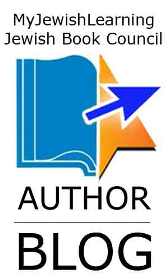Join a community of readers who are committed to Jewish stories
Sign up for JBC’s Nu Reads, a curated selection of Jewish books delivered straight to your door!
On Monday, Douglas Stark wrote about the best Jewish basketball team ever. His new book, The SPHAS: The Life and Times of Basketball’s Greatest Jewish Team, is now available.
 Writing a book about a Jewish basketball team that had not played a meaningful game in nearly seventy years posed some challenges. The Philadelphia SPHAS were a great basketball team, but by the end of World War II, their best days were behind them. They were no longer significant players in the basketball world. So, I asked myself some questions. How do you find information about a team that no longer exists? Are any of the players still alive? Does anyone still remember them?
Writing a book about a Jewish basketball team that had not played a meaningful game in nearly seventy years posed some challenges. The Philadelphia SPHAS were a great basketball team, but by the end of World War II, their best days were behind them. They were no longer significant players in the basketball world. So, I asked myself some questions. How do you find information about a team that no longer exists? Are any of the players still alive? Does anyone still remember them?
As I began working on this book, I realized that I needed to assemble a research plan. I figured newspapers would be a good start. Philadelphia had several papers such as the Philadelphia Inquirer and the Philadelphia Record and I felt both would be helpful. But I wanted to see what was written in the cities of their opponents. How was the team covered on the road? What was press coverage like in opposing cities? I then began tracking down newspapers in Boston, New York, New Jersey, Wilmington, Baltimore, Washington and many cities in the Midwest where they traveled. In addition to the mainstream press, I also targeted the Jewish press to see if the team was covered.
Over the course of several years, I spent many long and lonely hours in front of microfilm machines finding articles and scores. Unfortunately, none of the newspapers I needed were digitized, so I was manually cranking the microfilm reader.
Throughout the course of using the newspapers I learned a few things. The SPHAS and professional basketball were covered by the mainstream press. Some cities did it better than others, but basketball was covered. At that time, basketball was not the most predominant sport but it did receive coverage.
Philadelphia newspapers covered the SPHAS extremely well. That was partially due to team manager Eddie Gottlieb and his relationship with the newspapers and local reporters. When the SPHAS played at home, the Philadelphia newspapers gave ample coverage, often with a good-size article and the box score. When the SPHAS played on the road, the wire service would provide a brief write-up, maybe a few paragraphs. A box score was usually included.
Unlike today, however, the articles had no quotes. They were simply write-ups of the games. They were extremely descriptive, and in some cases would go play-by-play or point-by-point. The writing style was different and reporters embellished the action and gave you a sense of what was happening. The lack of quotes did not give any first-hand accounts of the games and drama unfolding.
I also learned that the Jewish press did not cover basketball too much. Baseball with Hank Greenberg, boxing with Barney Ross, and basketball with Nat Holman received the only sports press. Surprisingly,the SPHAS were not covered by Jewish newspapers.
Despite some of the challenges and omissions, the newspapers proved to be a great source of information about the SPHAS and professional basketball during the 1920s to 1940s.
Check back all week to read more posts by Douglas Stark for the Jewish Book Council and MyJewishLearning.
Douglas Stark is a sports historian who has worked at the Naismith Memorial Basketball Hall of Fame, the United States Golf Association, and now as the Museum Director at the International Tennis Hall of Fame, where he oversees the day-to-day operations of the museum. He is the author of The SPHAS: The Life and Times of Basketball’s Greatest Jewish Team and Wartime Basketball: The Emergence of the National Sport during World War II.
Douglas Stark is available to be booked for speaking engagements through Read On. Click here for more information.